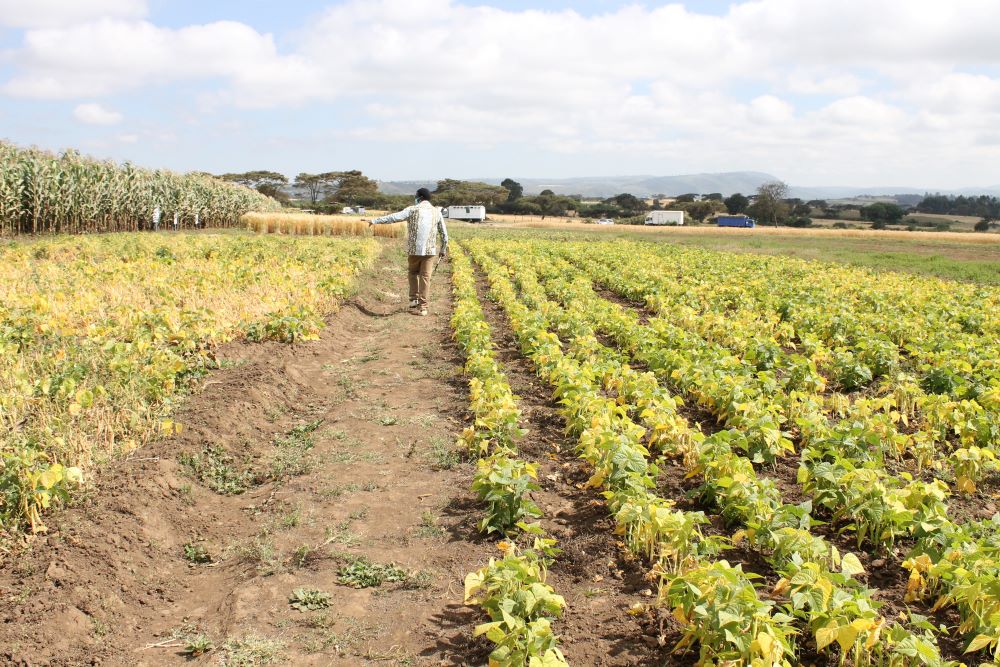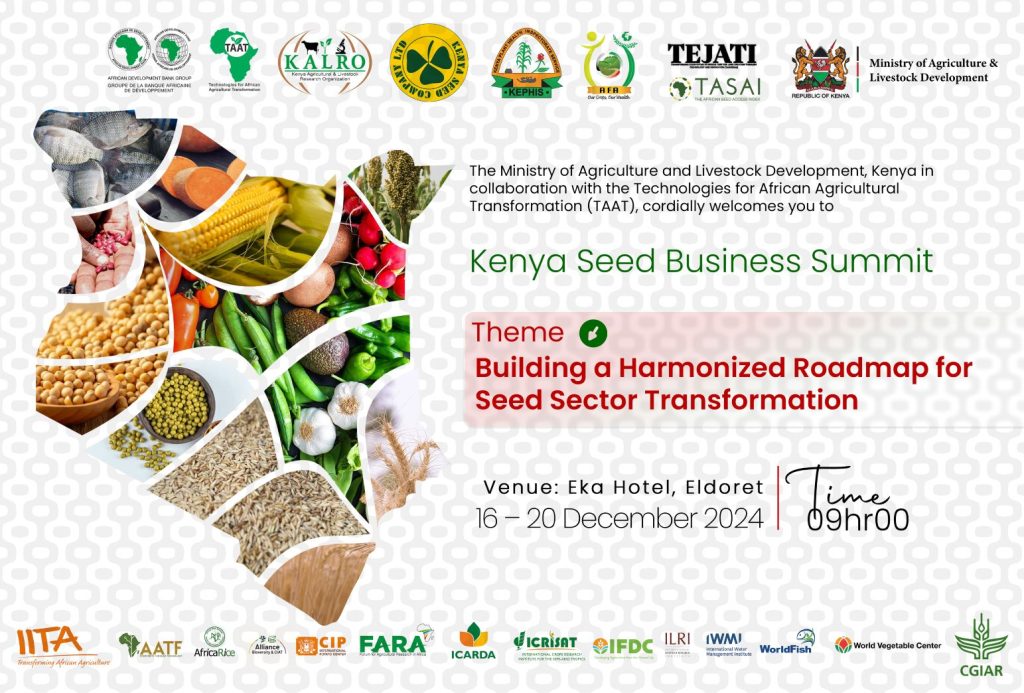
By Ekouya Suzanne HOUEFONDE
Stakeholders from Kenyaand across Africa are organising a summit to draw a seed roadmap for the East African country.
The consortium of stakeholders includes the Government of Kenya through the Ministry of Agriculture and Livestock Development (MOALD), Kenya Agricultural and Livestock Research Organisation (KALRO), Kenya Seed Company Limited, and Technologies for African Agricultural Transformation (TAAT) of the African Development Bank.
Others are the Kenya Plant Health Inspectorate Service (KEPHIS), the Agriculture and Food Authority and the Transforming Ecosystems for Jobs in Agriculture through Technology and Innovation Initiative (TEJATI).
The three-day Seed Business Summit, with the theme “Building a Harmonized Roadmap for Seed Sector Transformation,” will be held from December 16 to 19, 2024, in Eldoret, Kenya.
The forum aims to catalyze an agricultural revolution in Kenya by establishing an economically sustainable seed system for priority crops like rice, fish, beans, cassava, sorghum/millet, maize, soybeans, and wheat.
According to Dr Solomon Gizaw, the Head of TAAT Clearinghouse, “this summit represents a direct response to the need to hold a more comprehensive audience consultation to identify major challenges, develop solutions, and advocate for more investments in Kenya’s agriculture.”
“At this seed business summit, we will share best practices on innovative technologies for the selected crops and how their deployment can be scaled up in Kenya to strengthen the country’s food productivity and production,” Dr Gizaw added.
The TAAT Policy Compact Leader, Dr Francis Nang’ayo, explained that “the seed summit will produce outcomes that will form the basis of future investment in Kenya’s seed system.
It will produce recommendations to help forge a roadmap to feed into the country’s agricultural policies and plans.”

The Kenyan Cabinet Secretary for Agriculture and Livestock Development, Dr Andrew Karanja, will chair the summit’s closing ceremony, with support from County Governors, other dignitaries and development partners.
In addition to the conveners, several national stakeholders, including farmers, seed producers, and International Development partners, will participate in the summit.
They include the African Development Bank (AfDB), the Bill and Melinda Gates Foundation (BMGF), the Food and Agriculture Organization (FAO), the World Bank, the European Union, the World Food Programme (WFP), the United States Agency for International Development (USAID), GIZ, and the International Institute of Tropical Agriculture (IITA) which executes the TAAT Programme.
Others include the African Agricultural Technology Foundation (AATF), the International Crops Research Institute for Semi-Arid Tropics (ICRISAT), the World Vegetable Centre (WorldVeg), the International Potato Centre (CIP), the WorldFish Centre, the Alliance of Bioversity International and CIAT, and the International Centre for Agriculture in the Dry Areas (ICARDA).












